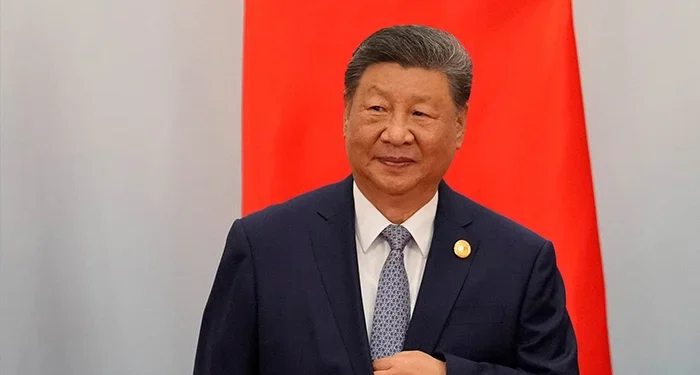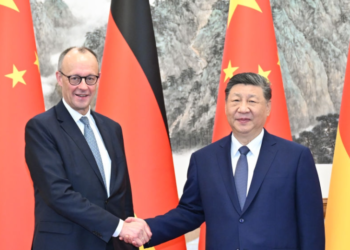TIANJIN; Chinese President Xi Jinping on Monday urged Shanghai Cooperation Organization (SCO) member states to take concrete steps toward a more equitable global order, as the bloc opened its largest-ever summit in northern China’s port city of Tianjin.
Addressing the 25th Meeting of the SCO Council of Heads of State, Xi called on members to uphold the “Shanghai Spirit” of mutual trust, equality, and cooperation in the face of global uncertainty. He highlighted the SCO’s expansion from six founding members in 2001 to a 26-nation grouping today, spanning Asia, Europe, and Africa, with cooperation in over 50 sectors and a combined economic output nearing $30 trillion.
Xi stressed that the SCO has pioneered several initiatives — including border security confidence-building, Belt and Road cooperation, and a treaty of long-term good-neighborliness — setting it apart as a model for multilateralism. “We should promote equal and orderly multipolarity, inclusive globalization, and a fairer global governance system,” he said.
To strengthen cooperation, Xi announced that China will provide 2 billion yuan ($281 million) in grants to SCO states this year and extend an additional 10 billion yuan in loans through the SCO Interbank Consortium over the next three years. He also pledged 100 “small but impactful” livelihood projects, 10 Luban vocational training workshops, and 10,000 human resource training opportunities across member countries.
Xi urged members to leverage their massive combined markets and strengthen collaboration in trade, investment, energy, infrastructure, green industries, digital economy, and artificial intelligence. He also called for activating the SCO Anti-Drug Center, Security Threat Response Center, and setting up a development bank to bolster both economic and security ties.
The summit brought together leaders including Pakistan’s Prime Minister Shehbaz Sharif, Russia’s Vladimir Putin, India’s Narendra Modi, and Central Asian heads of state, showcasing Global South solidarity.
Putin used the platform to defend Russia’s ongoing war in Ukraine, blaming the West for provoking the conflict by supporting the 2014 revolution in Kyiv and NATO expansion. “The crisis was not triggered by Russia’s actions but by Western interference,” he argued, while backing China and India’s efforts at mediation.
Meanwhile, analysts say Beijing is using the summit to position the SCO as an alternative to Western-led institutions such as NATO, promoting a governance model that reflects the interests of the Global South.
United Nations Secretary-General Antonio Guterres, in a message to the summit, hailed China’s “fundamental role in safeguarding multilateralism.”
The two-day summit also served as a stage for China and India to ease tensions, with Modi and Xi agreeing to enhance trade and reaffirming that their countries are “partners in development, not rivals.”
Xi concluded by calling on SCO states to remain united, set aside differences, and take practical measures for the bloc’s sustained development. “China’s growth will always align with the aspirations of SCO members for a better life,” he said.


















